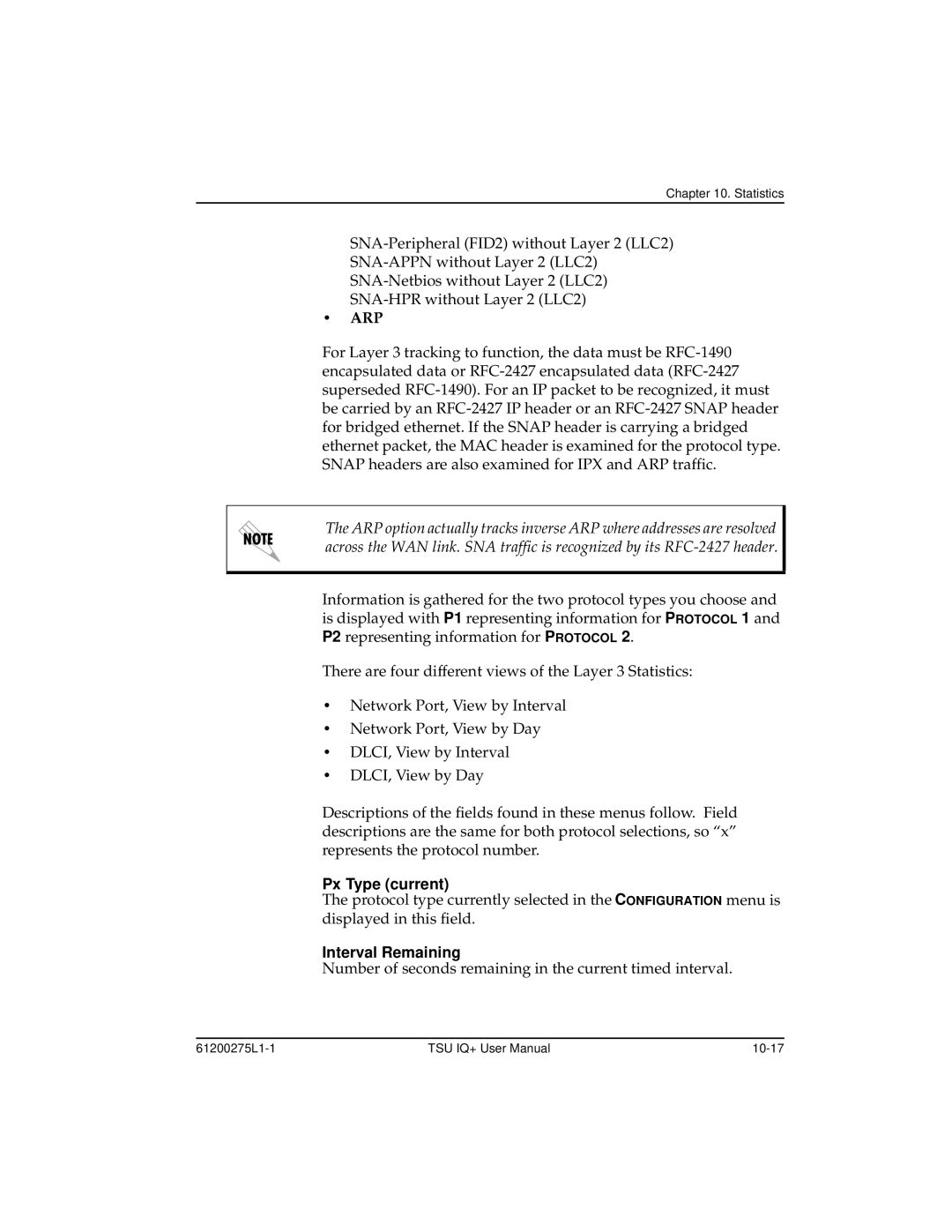
Chapter 10. Statistics
•ARP
For Layer 3 tracking to function, the data must be
The ARP option actually tracks inverse ARP where addresses are resolved across the WAN link. SNA traffic is recognized by its
Information is gathered for the two protocol types you choose and is displayed with P1 representing information for PROTOCOL 1 and P2 representing information for PROTOCOL 2.
There are four different views of the Layer 3 Statistics:
•Network Port, View by Interval
•Network Port, View by Day
•DLCI, View by Interval
•DLCI, View by Day
Descriptions of the fields found in these menus follow. Field descriptions are the same for both protocol selections, so “x” represents the protocol number.
Px Type (current)
The protocol type currently selected in the CONFIGURATION menu is displayed in this field.
Interval Remaining
Number of seconds remaining in the current timed interval.
TSU IQ+ User Manual |
